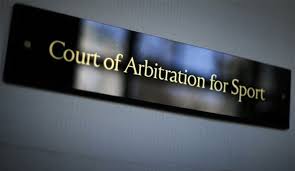By David Owen
September 11 – The International Council of Arbitration for Sport (ICAS) has played down the significance of a ruling by the Brussels Court of Appeal that has been reported as calling into question the ability of football bodies, and potentially counterparts in other sports, to insist that disputes go to the Swiss-based Court of Arbitration for Sport (CAS).
A statement concerning last month’s decision in a procedure involving the Belgian third-tier club RFC Seraing and investment fund Doyen Sports against FIFA, UEFA and two other football bodies was released by ICAS/CAS on Monday. It suggested that the potential issue raised by the ruling might be resolved by a rewording of FIFA statutes, with no wider implications for CAS jurisdiction.
The statement said: “The Brussels Court of Appeal rejected an objection against its jurisdiction to rule on the dispute…The Court said that the arbitration exception does not work in this particular matter, in the light of Belgian law, on the grounds that the arbitration clause in the FIFA statutes is not specific enough.
“The problem lies only with the wording of the CAS clause in the FIFA statutes; such drafting issue does not affect the jurisdiction of CAS globally.
“The Court neither expressed any objection or reservation towards sports arbitration as a dispute resolution mechanism globally, nor criticised the CAS system. Furthermore, no CAS arbitration clauses have been declared “illegal” in the Brussels judgment.”
The statement concluded: “The risk that a national court does not recognise CAS arbitration or does not enforce a CAS award cannot be equal to zero, but is very limited…
It must be emphasised that CAS awards can always be challenged before the Swiss Federal Tribunal, which is the highest State court in Switzerland.”
It has been reported that the Brussels Court ruling considers that arbitration rules in the statutes of FIFA and UEFA, which insist on disputes being heard exclusively by CAS, violate both the European Convention of Human Rights and the European Charter of Fundamental Rights.
Contact the writer of this story at moc.l1745350308labto1745350308ofdlr1745350308owedi1745350308sni@n1745350308ewo.d1745350308ivad1745350308

